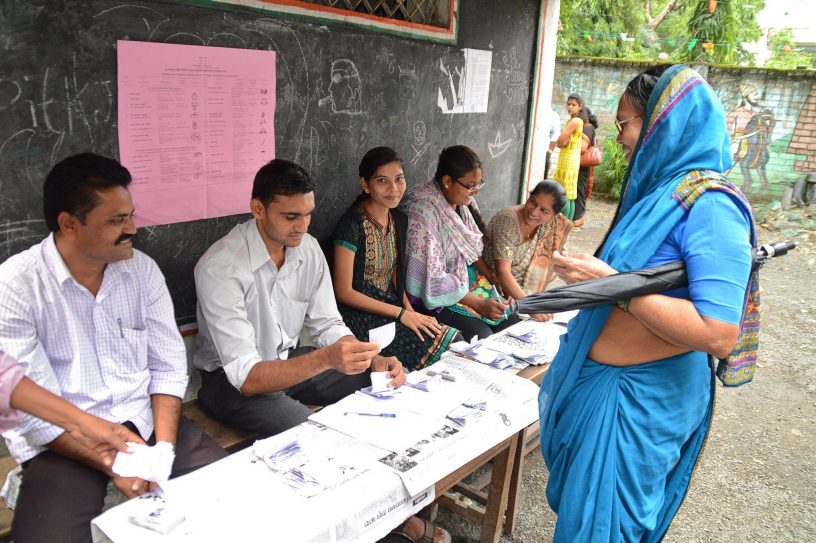
This study explores how perceived household and national economic conditions impact the decisions of voters in Kerala and West Bengal.
Authors
Subhasish Ray, Jindal School of Government and Public Policy, O. P. Jindal Global University, Sonipat, Haryana
Anil Varughese, Carleton University, School of Public Policy & Administration, Ottawa, Ontario, K1S 5B6, Canada
Summary
While economic voting has traditionally been perceived as anathema in Indian elections, as identity-based voting garners more attention, this new study analyses whether voters can correctly assess the role of different political political parties in a federal structure like India.
For the study, the researchers examined voter behaviour in Kerala and West Bengal through survey data collected prior to the 2019 parliamentary election. Kerala and West Bengal were picked for the study as both the states are widely acclaimed for pro-poor governance.
The researchers — Subhasish Ray from O.P. Jindal Global University in Sonipat, Haryana and Anil Varughese from Carleton University in Ontario, Canada — hypothesized that voters in sub-national pro-poor contexts will use their household economic conditions as well as national economic conditions to decide whether to renew the tenure of the national incumbent.
Their analysis revealed a complex pattern of economic voting consistent
with their assumptions about the sub-national voter. Specifically, the researchers found that voters were more (less) inclined to vote for the subnational incumbent if their household economic conditions were perceived to have improved (deteriorated) relative to national economic conditions.
Voters in these settings were more likely to reward the sub-national incumbent for superior economic performance than to punish inferior economic performance, thus further affirming the reciprocal ties that bind sub-national welfare regimes with their electorates, the findings showed.
The researchers said that their sub-state and state-level analyses reinforced their hypothesis that the voters in sub-national pro-poor contexts are able to hold sub-national and national incumbents accountable for their economic policies.
“Our analysis demonstrates that voters in these contexts were able to parse through the hard constraints imposed by multiple levels of government and partisan dealignment at the various levels to correctly attribute credit and blame to sub-national and national incumbents by assessing personal economic conditions using national economic conditions as a benchmark and vice versa,” the researchers wrote.
Ray and Varughese also believe that their findings can be applied to other asymmetric federations, such as Canada where assessments of national and local economic conditions can influence support or disapproval for a federal incumbent.
Published in: Electoral Studies
To read the full research paper, please click here


